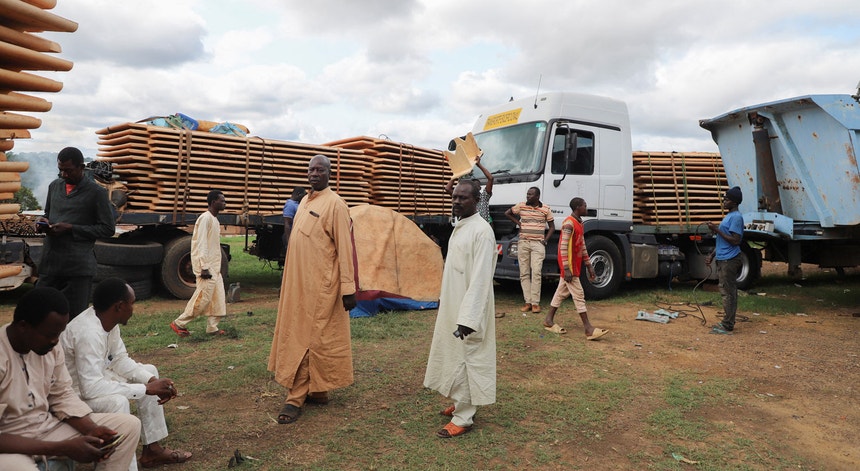This decision comes two days before the inauguration of General Brice Oleg Nguema as interim president, scheduled for Monday, for a period whose duration has not been determined.
Gabon’s new strongman on Friday promised a new constitution and electoral law, closing the door on the main parties in the former opposition that urged him to return power to civilians and hand it over to Albert Ondo Osa, who remains in second place in the country. The presidential elections scheduled for August 26, which he considered fraudulent.
Last week, the military seized power less than an hour after announcing the re-election of President Ali Bongo Ondimba, claiming that the results of the presidential election had been changed and that his regime was characterized by “irresponsible and unpredictable governance.”
Colonel Ulrich Manfumbi Manfumbi, spokesperson for the Commission on Transition and Institutional Restoration (CTRI), explained that the decision to reopen the border was taken “to maintain respect for the rule of law and good relations with our neighbors and all countries of the world.” This was in a statement read on official television.
Manfombi also stressed the military’s “steadfast will” to fulfill international obligations in a statement read on state television.
On Friday, Oligwe Nguema promised “more democratic” institutions that respect human rights, but without rush, after meetings held in recent days with parties, diplomatic bodies, international organizations and donors.
General Oligwe also targeted corruption in the former power of Bongo, whose family ruled the small, oil-rich African nation for more than 55 years.
However, the authorities have not lifted the partial curfew that remains in effect throughout the territory, but “travelers arriving in Gabon or intending to depart will be allowed to travel upon presentation of a travel document,” Manfombi Manfombi explained.
French Defense Minister Sebastien Lecornu announced, in an interview with Le Figaro newspaper published on Friday evening, that the activities of about 400 French soldiers, permanently stationed in Gabon, had been suspended on Friday, within the framework of bilateral military cooperation, “pending clarification of the political situation.” .
Lecornu was careful to distinguish between the coups in Gabon and Niger at the end of July.
“France condemns all acts of force (…) However, we cannot equate the situation in Niger, where illegitimate military officers overthrew a legitimately elected president, with the situation in Gabon, where the reason given by the army is precisely non-compliance with the decisions. He added: “The election law and the constitution. Because in fact, and I weigh my words, there are doubts about the transparency of elections in this country.”
The coup leader stated that the dissolution of the institutions was temporary.
In front of civil society, General Oligwe, leader of the powerful Bongo family Imperial Guard, promised a new constitution and a new electoral law, but without “confusing speed with haste,” claiming that “he who goes slowly, goes safe.”
Bongo has been under house arrest in Libreville since the coup. His wife, Sylvia Bongo, who is of French-Gabonese origin, is being held incommunicado, his lawyers said, and announced that they had filed a complaint in France about arbitrary detention.

“Hardcore alcohol maven. Hipster-friendly analyst. Introvert. Devoted social media advocate.”

